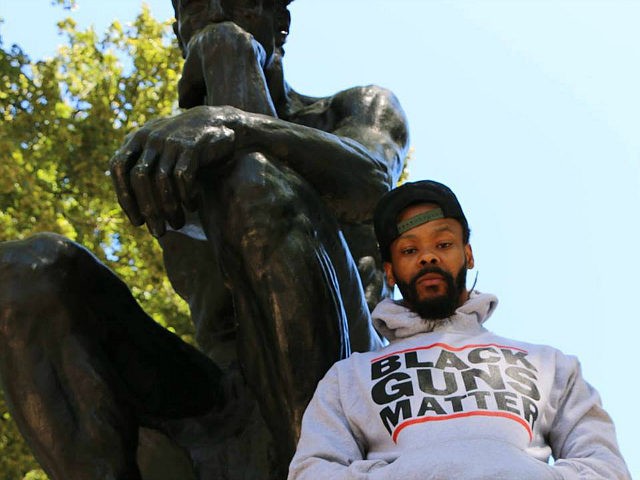Black Guns Matter’ Founder: NRA Stood with Bla
Post# of 52061

NRA Stood with Blacks When
Democrats Attacked in 1960s
< >

Maj Toure, founder of Black Guns Matter, points out that the National Rifle Association (NRA) stood with blacks during the 1960s when Democrat-comprised groups like the Ku Klux Klan were terrorizing and attacking them.
While speaking to Ebony magazine about his “Black Guns Matter” group, Toure explains that the NRA stood with the “Deacons for Defense,” a group of black men who armed themselves in the 1960s to fight off white terror in the Democrat-controlled south.
Ebony asked him about the NRA and whether the NRA has a responsibility to stand up for the black community. Toure responded first by stressing his belief that the black community has to take care of itself and stop “passing the buck.” But he also stressed that the NRA stood with the black community in the racially turbulent 1960s–a time when few others did.
Toure said:
I think the NRA isn’t responsible to jump up. They are a civil liberties organization. They’re not there to do the work we, as a community, aren’t doing. They’re there as a resource for people to use to understand and exercise and learn. They’re not lawyers, per se. We can’t keep passing the buck. As far as I understand, the organization [is] only beholding [sic] to [its] members and if you’re not a member, there’s a different question there.
He then addressed the claim that the NRA should get involved whenever questions of justice are raised by a video of a black man and a white police officer, saying:
When things happen, local businesses, like Walmart, should be leaned on. Local politicians need to be checked. Local authorities need to be fired. Things of that nature. That’s what spurs change. I don’t rely on the NRA. I rely on our hard work and our persistence to fix things. The NRA has done enough to prove what their position is, in regard to the Second Amendment. The NRA has helped the Deacons for Defense in the late ‘60’s with [Rev. Martin Luther] King.
Dave Kopel provides historical context for understanding the Deacons of Defense:
In 1964, CORE [the Congress for Racial Equality] began community organizing in the pine mill town of Jonesboro, La. One night, the local police led a Klan motorcade through black neighborhoods, strewing Klan flyers, and then heading to the local jail to threaten imprisoned civil rights workers.
That summer, about 20 black Army veterans had informally founded a community defense patrol. They adopted the name “Deacons for Defense and Justice” because most of them were practicing Christians, and they aimed to serve their communities in a Christian manner. The Deacons conducted nighttime auto patrols of black neighborhoods, communicating via Citizens Band radios and walkie-talkies. core worked closely with the Deacons, and soon, the energy and pride provided by the Deacons had helped make Jonesboro one of CORE’s best-organized towns.
Inspired by the visible public presence of boldly armed men, the attitudes of blacks in Jonesboro began to change. Black housekeepers stopped accepting racial taunts, and quit if the taunts continued. “Armed Negroes Make Jonesboro Unusual Town,” observed a Feb. 21, 1965, New York Times article.
On the day the Times article was published, a second chapter was formed—this one in Bogalusa, La., another mill town, and a notorious Klan stronghold. The Bogalusa chapter’s president, Charles Sims, said, “Let’s back up the Constitution of the United States and say we can bear arms. We have a right to defend ourselves. …”
On March 8 of that year, the Deacons for Defense and Justice formally incorporated as a Louisiana non-profit organization. The corporate charter explained that the group’s purpose was “the defense of civil rights, property rights and personal rights … and [to] defend said rights by any and all honorable and legal means to the end that justice may be obtained.” Just like April 19—the first battle of the American Revolution—March 8 is a day that should be forever celebrated to honor armed Americans who defended liberty.
Toure wants his fellow black citizens to understand that the NRA stood with the Deacons of Defense while Democrat groups like the Ku Klux Klan fought against them.
Kopel describes the NRA as the Deacon for Defense’s “arsenal of democracy.”
 (0)
(0) (0)
(0)